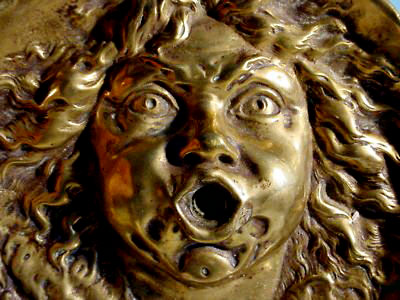Myth of Aeolus

In Greek mythology, Aeolus is the god of the winds. Born mortal, he became immortal at the behest of Zeus. Son of Poseidon and Melanippe. Aeolus, to escape from Metaponto, king of Icaria, took refuge in the islands that later took the name of Aeolian from him. When Zeus decided to enclose the winds in some amphorae, because he considered them dangerous if left in the wild, his wife Hera suggested hiding them in a cave in the Tyrrhenian Sea and entrusting their custody to Aeolus. The winds were released according to the will of the gods or the pleas of mortals, also causing very serious damage due to their strength. Aeolus fulfilled his role so well that Zeus decided to make him immortal guarding the winds.
Aeolus is remembered in many works of the past: Iliad, Odyssey, and Aeneid. In particular, the Odyssey (book X, vv 1-25) tells of Ulysses, a veteran of the Trojan war, who was hosted by Aeolus who gave him a skin bottle inside which the winds against navigation were enclosed. Legend has it that, during the journey, Ulysses made only the sweet Zephyr blow but while he slept, his companions, believing that the bottle was full of treasures, opened it, releasing the winds that unleashed a terrible storm from which he was saved. only the ship of Ulysses.
“And we came to the Aeolian island. Here he lived
Aeolus, dear to the gods, Then when he took leave I asked him to leave
he did not refuse, but took my trip to heart;
stripped a nine-year-old ox of the hide
he made a wineskin, and closed it inside
of the howling winds the streets: he had a keeper
of the winds made the chronicle, and could
keep them quiet or incite them at will. "
(Odyssey book X, vv 1-25)
These are the winds guarded by Aeolus,
- Boreas, the most violent, very cold North wind;
- Zephyr, wind from the West, sweet and beneficial that announces spring;
- Euro, East Wind, sometimes stormy and sometimes dry that brought good weather;
- Austro, South Wind, very hot and rain-bearer depicted always wet.
- Libeccio, South-West wind shrouded in fog;
- Cecia, Northeast Wind, old man with a snake's tail and a plate of olives in his hand;
- Apeliotes, Southeast Wind in the hands of which were ripe fruit;
- Schirone, North-West Wind with an urn full of water ready to be overturned on the earth.
Places indicated in the IWB register of the Sicily Region (Places of Identity and Memory) - Sector "Places of gods and minor divinities"
- Aeolian Islands
Visit Sicilian Intangible Cultural Heritage database to learn about other intangible assets
Visit Data Maps Heritage: Set of databases of the Sicilian Cultural Heritage to know other databases (nature, baroque, archeology, material assets and much more)



